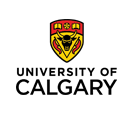
A University of Calgary faculty member will speak at the world’s largest face-to-face gathering of elite hackers.
DEF CON, the biggest conference of its kind, brings together over 15,000 professional and amateur computer security experts every year to discuss the latest tech vulnerabilities. It’s the first time a University of Calgary professor will present at the conference, which takes place Aug. 1-4.
Environmental Design professor Tom Keenan will deliver a speech called Torturing Open Government Systems for Fun, Profit and Time Travel. He will discuss the open data movement – the idea that data, particularly government data, should be freely available to anyone – and voice his concerns about how we unlock government data vaults.
Keenan worries about the potential release of personal information or having sensitive information fall into the wrong hands. Recently, U.S. President Barack Obama praised the open data movement, saying that entrepreneurs and business owners are now using the data to create jobs and solve problems that government can't solve by itself. Keenan agrees with Obama, but also has a warning. “There’s no question that freeing up government data is like opening a treasure chest,” says Keenan, a leader in the Smart Cities movement and juror for the Intelligent Community of the Year.
“We can find new and better ways to run our cities, improve our environment, prevent disasters and make our lives better.” But Keenan, who also serves as an adjunct professor of computer science, cautions it’s also like opening Pandora’s Box. “New tools are becoming available that allow citizens to input data directly, combine it, visualize it and plot it on a map. They might find things that government never intended to release.”
For example, in his research, Keenan used open data to draw inferences about voting patterns in Edmonton’s last mayoral election. He used Toronto’s 311 service request database to find chronic complainers’ approximate addresses. He once tracked down an Alberta CEO’s home address, property assessment and daughter’s Facebook page to see when they were going on vacation. In the wrong hands, each example shows how open data can be used for nefarious purposes.
Keenan says we need to strike a careful balance between making data public and protecting privacy. Once data is released, it’s impossible to get it back. Just as crime investigators re-open old cases to apply new DNA technology, data sleuths from the future will pore over our civic data with even better analytical tools and approaches.
Article by Jessica Wallace. Image of EVDS professor Tom Keenan at the United States Secret Service headquarters in Washington, D.C.

